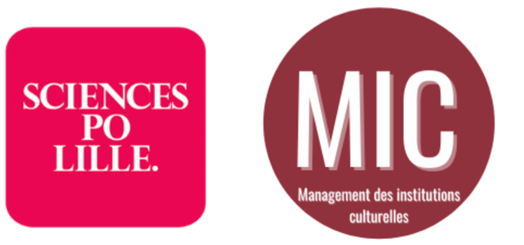Welcome to the website of the Management des Institutions Culturelles (MIC)/Cultural Institutions Management Major at Sciences Po Lille.
Main career opportunities
Students in the Management des Institutions Culturelles (MIC)/Cultural Institutions Management major are prepared to hold various and versatile roles in different cultural sectors:
The live performance, heritage, and visual arts programme specifically prepare for roles as managers or administrators in administration, production, distribution, communication, fundraising, audience development, cultural activities, within these sectors in public institutions, local authorities, national institutions, private companies, or associations.
The MIC major will focus primarily on the fields of performing arts, heritage, visual arts and public policies for art and culture.
Head of the AP major

Anne-Claire Beurthey
Teacher | Director of Professional Integration and Apprenticeships
Areas of expertise: cultural industries; creative and cultural project management; support with cultural projects and professional insertion.
Editorial by the head of the major
If you are passionate about art and culture and wish to make it your professional project, welcome to the Management des Institutions Culturelles (MIC)/Cultural Institutions Management major’s website.
MIC prepares students for a variety of multi-skilled careers in the different cultural sectors. These careers involve responsibility for cultural projects and structures (production, administration, dissemination, distribution, communication and fundraising, cultural action). In the fields of performing arts, cultural heritage, visual arts and cultural policy.
To facilitate access to these highly attractive careers and sectors, MIC offers a theoretical and practical training program that combines a degree from Sciences Po Lille with a year of professional experience, leveraging a solid and growing network of cultural partners.
The interdisciplinary and general theoretical training takes place at Sciences Po Lille. It encompasses foundational knowledge in social sciences (history of cultural policies and practices, sociology, economics of culture), professional knowledge (audience research, management of cultural facilities, sustainable culture, audience communication and development, budget management, social management, and sponsorship), as well as research work and artistic and cultural projects.
These courses are complemented by career guidance throughout the two years.
Practical training is conducted through apprenticeships in cultural organizations in Hauts de France and Île-de-France, two French regions rich in cultural entities, for three days a week during the second year. This provides essential professional knowledge, skills, and networks for stepping into a cultural profession.
To find out more, our ambassadors will be happy to answer your questions. You can find their contact details here.
Anne-Claire Beurthey
